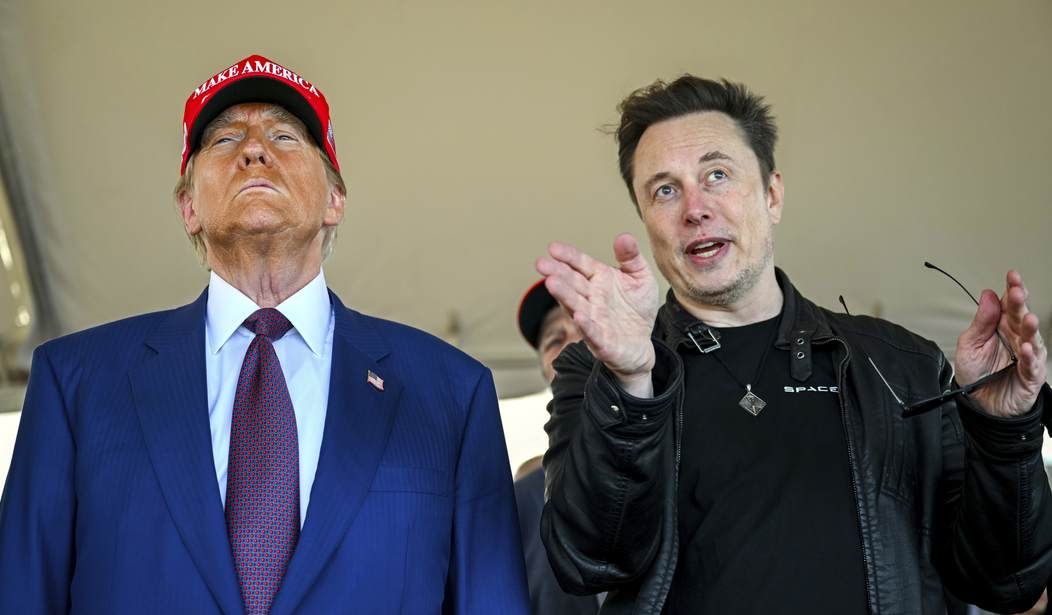Last week a group of states sued Elon Musk and DOGE demanding that he be sent to the Senate for confirmation. Today, U.S. District Judge Tanya Chutkan held arguments in the case despite the fact that it was President's Day, normally a holiday for the courts. The judge promised to render her decision within 24 hours, however it sounded as if she was not especially impressed with the plaintiff's request for a temporary restraining order to block DOGE's activity.
The states argued their ability to carry out educational and other programs were at risk. They accused Musk's team of using data gleaned from agency systems to dismantle initiatives and direct mass firings.
"The things I’m hearing are troubling indeed, but I have to have a record and findings of fact before I issue something," Chutkan said. She expressed doubt that the states had met the legal standard for imminent harm required for a temporary restraining order, or TRO.
"It’s kind of a like a prophylactic TRO and that’s not allowed," she said of the states' request. She said if the states eventually prevailed, she could order programs to be restored.
ABC News has more:
The judge said that in order to issue such an urgent temporary restraining order, the states would have to prove a threat of "extreme" and "imminent harm" that "can't be undone" -- and although having to "scramble to rehire" laid-off employees might be difficult and challenging, it can be done.
"I'm not seeing it so far," she said of the harms the plaintiffs are claiming.
That's good news I guess but it's really a pretty small win in the scope of things. Something like 20 lawsuits have been filed against DOGE and several judges have already ruled in favor of restraining orders.
Over the last week, courts have ruled that DOGE is temporarily barred from accessing sensitive Treasury Department information and payment systems; that agencies that maintain public health data must restore their websites and databases; that the State Department must pause the implementation of Trump's sweeping 90-day foreign aid freeze and the dismantling of the Consumer Financial Protection Bureau; and that the National Institutes of Health cannot reduce their cap on indirect funding for research, nor can the federal government withhold any federal funding because a health care entity or professional provides gender-affirming medical service to a minor.
However DOGE has had some wins too. Last week a different judge refused to issue a restraining order on DOGE's access to data at four agencies including HHS and Labor Department.
A federal judge declined on Friday to block the access of the so-called Department of Government Efficiency to records systems containing personal information at the Health and Human Services Department, the Labor Department and the Consumer Financial Protection Bureau, a setback for unions and nonprofits trying to fight Elon Musk’s effort to cut and reshape government...
“The record indicates,” Judge Bates wrote, that members of Mr. Musk’s team are federal employees “who have a need for the record in the performance of their duties.”
The Trump administration also won a case relating to the buyout offer given to about 2 million federal employees.
As Ed noted earlier today, we're probably about to see another host of lawsuits incoming once DOGE moves on to scrutinize the IRS but even before we get there, DOGE is having an impact at Social Security where the head of the agency just resigned.
The acting commissioner of the Social Security Administration left her job this weekend after a clash with billionaire Elon Musk’s U.S. DOGE Service over their attempts to access sensitive government records, three people familiar with her departure said Monday.
Michelle King, who spent several decades at the agency before being named its acting commissioner last month, has now left her position after the disagreement, the people said...
“What I know is that DOGE wanted access to SSA’s sensitive files — the same way they’re trying to do at Labor and Treasury — and the acting commissioner wouldn’t give it, and she was replaced,” said Nancy Altman, president of Social Security Works, a left-leaning group, citing conversations with several current officials at the agency.
The exact details of the situation aren't clear but I'm not sure what is meant by "sensitive files" in that final quote. As I've pointed out before, I worked at SSA for 11 years in my late 20s and early 30s. While there I had computer access to vast amounts of data including the complete work history, salary, current address, etc. for nearly every American.
To be clear, I never abused that access and there were safeguards in place to make sure employees weren't looking up celebrities' work history for fun. That said, I also didn't have any kind of special security clearance, nor did any of the people I worked with who had the same access at their desks. I was just one of thousands of low level employees at the agency.
In all, SSA has more than 50,000 full time employees. So, again, the idea that this kind of access is a state secret just doesn't ring true. Tens of thousands of people at SSA have access to all sorts of personal data on Americans including medical and legal records. This is not limited to a few people and probably can't be. Someone has to prepare files on the millions of people being paid money every month by SSA.
Trump hasn't been in office for a full month yet. We're still very early in this process. Hopefully, the legal hurdles will be resolved in a few months and DOGE will continue to look for ways to bring government waste, fraud and abuse under control.








Join the conversation as a VIP Member